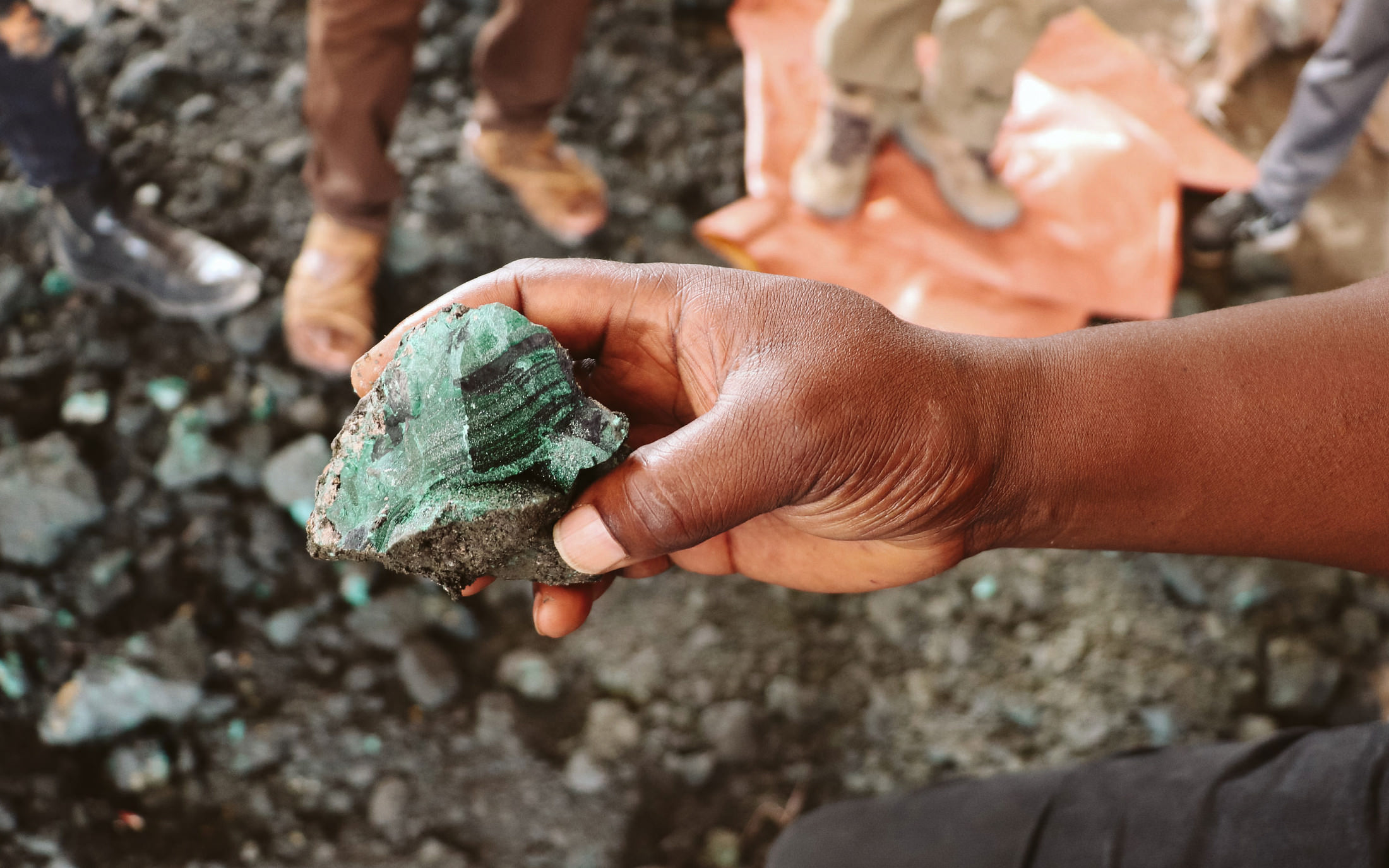Winston Churchill in 1911 decided to replace the British coal that powered the Royal Navy with oil from abroad. The West’s security and prosperity have depended on foreign hydrocarbons ever since. In the months since Russia invaded Ukraine, the risks raised by that dependence have been on glaring display.
The coming decades will bring a change in energy production just as epochal as the shift from coal to oil, and with geopolitical risks that are equally fraught. As American industry weans itself from fossil fuels, demand for cobalt—a key ingredient in batteries and select parts in electric cars, mobile phones, laptops and other technologies—will skyrocket. By 2040, global use of the mineral could increase more than 20-fold relative to 2020 levels, assuming countries meet the pledges they made in the Paris Agreement to deploy clean energy technologies.
If tomorrow’s economy will depend on cobalt, so will tomorrow’s military. The mineral is essential for fighter jet parts, precision munitions, stealth technology and more. Countries’ abilities to stockpile and deliver weapons can determine outcomes on the battlefield, as increasingly happens in Ukraine. The competition for rare-earth materials will grow as competition heats up between China, Russia and the U.S.
American access to cobalt depends largely on the Democratic Republic of the Congo, home to more of the mineral than the rest of the world put together. But in recent years Chinese firms have locked up access to most of Congo’s productive reserves of cobalt, with relatively little response from Washington. Today, China refines 80% of the world’s cobalt and 60% of its lithium and dominates the production of other minerals essential to the energy transition and defense manufacturing. The U.S. has no major cobalt-refining capacity, and the country’s cobalt stockpile has withered, from 13,000 tons during the Cold War to 333 tons in 2021.
The U.S. desperately needs a plan to erode China’s market share. Beijing can use its refining capacity to disrupt supply chains the U.S. uses and threaten trade disputes to advance Chinese aims. Further consolidation of the global cobalt market would let China raise the threat of export restrictions on materials that will power America’s industrial and military future. Experts like Joseph Dunford, a former chairman of the Joint Chiefs of Staff and a retired Marine Corps general, know the risks of allowing China to control supply chains. “America’s dependence on China for materials critical to U.S. national security not only risks strengthening President Xi’s hand, but it could also affect the strategic calculus of Beijing, Moscow, and other potential adversaries in conflict,” he said in an interview.
China’s near-monopoly on Congolese cobalt is bad news for the Congolese people. Cobalt extraction there often entails grotesque human-rights abuses, such as forced child labor and dangerous working conditions. During a visit to Congo this year, Pope Francis condemned “terrible forms of exploitation, unworthy of humanity and of creation” in the country’s mining sector. Chinese mining companies, which often flout labor and environmental protections, are unlikely to ensure that the cobalt they extract from local dealers is untainted by these abuses. The Congolese government could in theory revoke and nationalize Chinese firms’ stakes in Congo’s mining sector, but it is unlikely to take such a step, which could potentially increase economic and political tensions with Beijing at a time of heightened strategic competition on the continent.
The U.S. government must act. As a first step, the president should reinstate the role of Special Envoy to the Great Lakes Region of Africa, who was charged with advancing U.S. democratic ideals and human rights in the region. The new envoy would also oversee the effort to stockpile essential minerals from Congo. The envoy should forge multilateral arrangements with allied countries such as France, Germany and Belgium over shared concerns about energy and economic security.
Market forces alone can’t guarantee prospective U.S. mining companies’ resource security, especially in the face of China’s near-dominance in the sector. Congress can reauthorize the African Growth and Opportunities Act, which would provide the Congo with tariff-free priority access to U.S. markets, before it expires in 2025. Helping Western firms acquire bigger stakes in critical mineral reserves will help reduce American dependence on Beijing and warn China to rethink some of its policies on trade restrictions and security engagements in Africa and beyond.
More U.S. investment in Congo’s rare-earth minerals could also help the African country’s mining communities by raising safety standards and supporting economic growth. U.S. companies will be required to uphold global standards in concert with democratic allies on transparency, human rights and climate-resilient issues. U.S. investment also could lead to allocation of more profit to clean-energy infrastructure and development needs, such as schools and health clinics, technology and safety training, traceability mechanisms to the mine, and open, secure digital networks that aren’t subject to Chinese surveillance. A joint-venture approach facilitated by the new U.S. Partnership for Global Infrastructure and Investment, the U.S. Development Finance Corporation, and Prosper Africa could also facilitate public-private partnerships between American and Congolese governments and businesses.
China has raced ahead in the competition for critical minerals. But the U.S. still has special advantages, thanks to domestic market demand, cutting-edge technology, military alliances, and, vitally, its willingness to support the Congolese people. It is time to seize those advantages. Diplomatic and financial investments in Congo should be a humanitarian and strategic priority.
Ms. Melissa Skorka is a senior fellow at Oxford’s Changing Character of War Centre. She served as a strategic adviser to the Defense Department in national security and extractive industry, 2011-14.
Credit: Wall Street Journal


